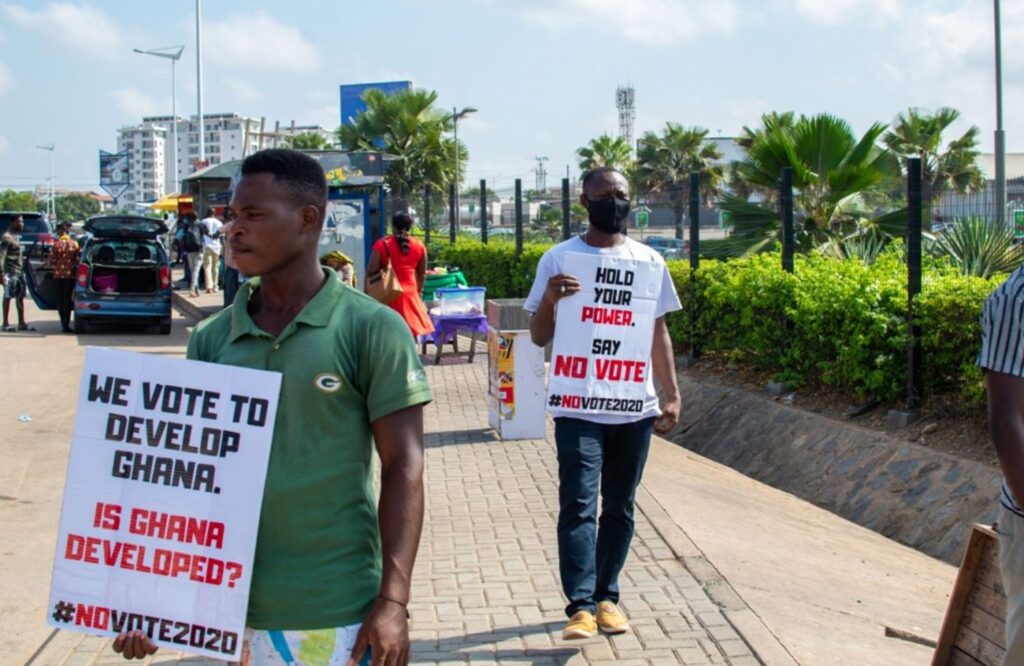Fund our research
Programmes and Projects
PROJECT PROPOSAL
2023-2024
INFORMED TO DECIDE (I2D)
We have a strong commitment to achieving the targets of sustainable development goal four (4). – ensuring inclusive and equitable quality education and promoting lifelong learning opportunities. To this end, we are committed to implementing programmes that have bearing on active learning and learning strategies, removing barriers to assessing education and leadership for both boys and girls. We also pursue civic education programmes because we believe that holistic education must be grounded in enduring social goals and values.
On 7th December 2024, more than 2 million first-time voters are expected to vote in the presidential and parliamentary elections in Ghana. First-time voters, according to the Electoral Commission of Ghana, are young people between the ages of 18 and 21 who are eligible to vote in an upcoming election. Characteristically, these first-time voters are enthusiastic about elections yet naïve and ill-formed about policies and policy implication. Additionally, they lack the understanding that the politico-economic consequence of their voter choice may last for the term ahead, and if dire, may have far-reaching consequences exceeding term limits.

The Informed to Decide (I2D) project is designed, in line with SDG 16.7 and related topic of “Information for Integrated Decision-Making and Participation”, for first-time voters in Ghanaian Senior High Schools and Undergraduate studies to process and assess the political, economic, and social policies of political parties through series of stakeholder engagements and personal assessment toolkit to inform their decisions and choice on election day, 7th December 2024. The Informed to Decide (I2D) project, for which AHOY is seeking funding, includes pre-election and post-election survey research.
The Sustainable Development Goal 16 – Peace, Justice and Strong Institutions – urges countries to; promote peaceful and inclusive societies for sustainable development; provide access to justice for all; and build effective, accountable, and inclusive institutions at all levels. Target 16.7 is to ensure responsive, inclusive, participatory, and representative decision-making at all levels.
We believe that the transformation of the continent is dependent on youth entrepreneurship and how their businesses can innovate to record net new growth. Mindful of the fact that many youth-led businesses in Africa are small-scale and subsistent in nature, AHOY provides them with data and insights that enables them to make empirically sound decisions.
Knowledge acquisition and sharing is important for these businesses because it helps them understand the trends and dynamics of their respective markets. It also helps them leverage on technology to innovate, be resilient and to thrive.
The future of jobs informed by recent global shocks and exigencies requires young people to reskill and upskill to remain relevant. We are keenly interested in connecting skilled youth to employment opportunities through our job center and training young people to acquire industry-demanded and emerging job skills.
Job Centre: Our job centre connects you to employment opportunities based on your skill set. Are you in need of a job? Click here to find one.
PROJECT PROPOSAL
CELEBRATING WOMEN MENSTRUAL HYGIENE DAY | 28TH APRIL 2023
FROM APATHY TO EMPATHY
Highlighting The Men In Menstruation
We believe that marginalized groups of young people – including young women – can be empowered to reach their best potential if they have equitable access to opportunities.
At AHOY, we leave no youth behind. We acknowledge differences in abilities and strongly advocate for structures and measures that promote accessibility. Our Gender and Social Protection Lead ensures programmes and projects are inclusive and accessible to all youth.
World Menstrual Hygiene Day is celebrated annually on May 28th to create awareness about menstrual hygiene management and the challenges faced by young girls and women. Menstruation remains a taboo subject in many cultures, and women often face stigma, discrimination, and a lack of access to essential products and services. AHOY Africa wishes to celebrate the Day in Ghana with a month-long series of events and activities aimed at encouraging men of all ages to empathize with women’s menstrual issues and become more supportive of menstrual health and hygiene.
The Ghana Context
Menstruation difficulties in Ghana are common, and they affect many women and girls. Some of the challenges that women and girls face during menstruation in Ghana include lack of access to sanitary products, stigma and shame, unhealthy cultural and religious beliefs, and, generally, period poverty that forces young girls into sex-for-pads scandals.

According to a 2018 study by UNICEF, in Ghana, only 36.7% of girls and women have access to basic menstrual hygiene products, and 19.4% of them use unhygienic materials like rags, leaves, or old cloths. Additionally, only 44.8% of schools in Ghana have separate toilets for girls and boys, making it difficult for girls to manage their menstrual hygiene in a private and safe manner.
In rural areas of Ghana, the situation is even more challenging. A 2019 survey by WaterAid found that 70% of girls in rural Ghanaian communities had no access to menstrual products, and they missed an average of 5 days of school each month during their periods.
Reach out to us if you wish to sponsor or finance this project
Contact Us
Get in touch with us!
Location: Head Office
112 Haatso Atomic Rd.| Haatso, Accra, Ghana
Ghana GPS: GE2958748
POST: P.O Box GP 21250, Accra, Ghana
enquiries@ahoyafrica.org
Telephone
+233 30 254 2607/+233 59 497 0144
AHOYafrica © 2023. All Rights reserved.